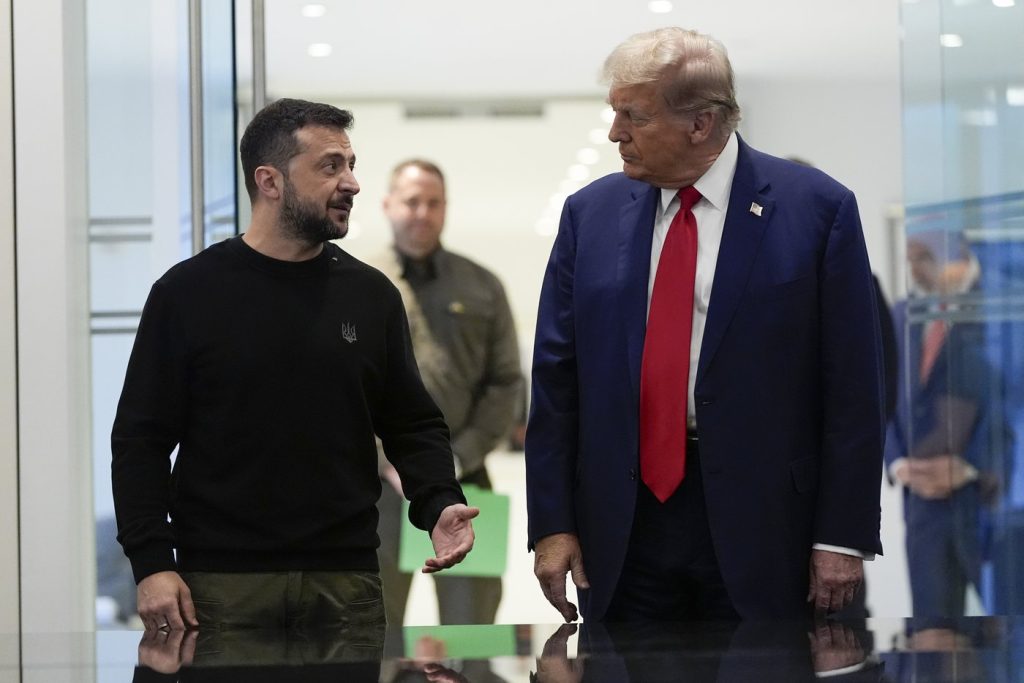As Ukraine neared the three-year anniversary of Russia's full-scale invasion, its prospects for a favorable and lasting peace faltered dramatically following actions by the administration of U.S. President Donald Trump. Historically, Ukraine had relied on robust support from the United States and European allies, which provided essential military and financial aid to counter Russia's persistent military threats. However, a lengthy phone call between Trump and Russian President Vladimir Putin, held on February 12, 2025, signaled a shift in U.S. policy that raised alarms in Kyiv and European capitals about the stability of their alliance against Moscow.
During the February 12 call, Trump and Putin agreed to initiate negotiations to end the conflict, a decision that sparked optimism in Russia but was met with concern in Ukraine. President Volodymyr Zelenskyy cautioned that any negotiations excluding Ukraine would be "very dangerous." Immediately following the call, Trump's administration maintained that Ukraine's aspirations for NATO membership were unrealistic and encouraged abandoning hopes of regaining all lost territories. U.S. Defense Secretary Pete Hegseth remarked that such views aligned closely with Moscow's perspectives, deepening concerns among Ukrainians about being sidelined in discussions regarding their future.
By February 14, at the Munich Security Conference, European leaders sought clarity from Trump’s officials, only to be taken aback by Vice President JD Vance's criticism of European allies and an ambiguous U.S. stance on support for Ukraine. Zelenskyy emphasized the necessity of security guarantees before engaging in negotiations with Russia. He also rejected a U.S. proposal that would have granted access to Ukraine’s rare earth minerals without adequate security guarantees, leading to a senior White House official describing his refusal as "short-sighted." Meanwhile, French President Emmanuel Macron began to rally European support for Ukraine amidst growing fears of waning U.S. backing.
On February 18, U.S. and Russian officials convened in Riyadh, sidestepping Ukraine and its European allies in discussions about the war's resolution. This unprecedented move towards improving diplomatic ties with Russia further alarmed Kyiv. Despite Trump’s officials claiming that the talks did not exclude Ukraine, Zelenskyy dismissed the discussions as unlikely to yield results without Ukrainian input. Trump's subsequent inflammatory remarks suggested Ukraine bore responsibility for the war and drew further ire in Kyiv, culminating in Zelenskyy accusing Trump of spreading Russian disinformation.
On February 20, after a canceled press conference, Trump allies like special envoy Keith Kellogg praised Ukrainian leadership while Trump himself continued his criticism of Zelenskyy, especially regarding negotiations around rare earth minerals. While Kellogg offered a more optimistic take on U.S.-Ukraine relations, the overall tone of the administration remained fraught with tension, evidenced by Trump's dismissive comments about Ukraine's role in the ongoing conflict.
The events surrounding Trump’s diplomatic engagements reflected a broader and concerning shift in U.S. foreign policy regarding Ukraine, signaling a potential undermining of previous commitments to support Ukraine against Russian aggression. The swift alteration in strategy left many Ukrainians apprehensive about their fate, fearing a peace agreement brokered without their involvement would lead to territorial losses and increased vulnerability to future Russian incursions.










